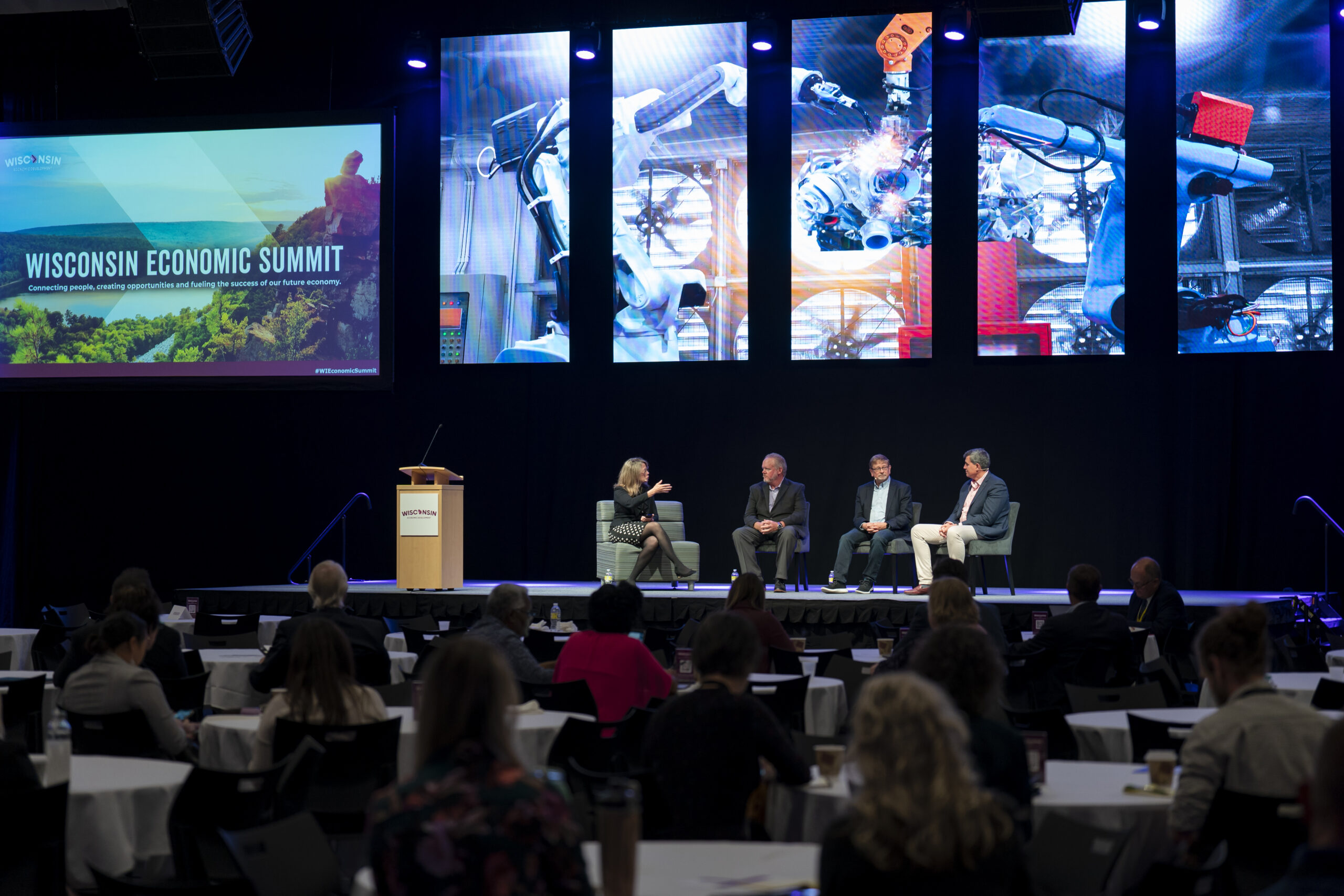
At the Wisconsin Economic Summit, a panel of automation experts discusses the benefits of technology in the workplace and how it can make Wisconsin businesses more competitive.
Automation is providing Wisconsin businesses with a rich opportunity to boost competitiveness and make people more productive in the workplace, a panel of experts said at the Wisconsin Economic Summit.
“I see it as the greatest opportunity of our time,” said Bill Berrien, CEO of Pindel Global Precision, a New Berlin manufacturer of precision machined components. “It augments the value of human talent. … It has a very inspiring future.”
Participants at the summit, held in Appleton in mid-September, heard that a wave of automation will boost the economy, free workers of mundane tasks and enable businesses to take full advantage of human capital.
“Our state has a highly trained and highly skilled workforce,” Berrien added. “You take those foundations and layer on top of them artificial intelligence and automation. Those are true augmenting technologies that add to the output of human talent.”
He added: “I think we have the opportunity to become the manufacturing port of the world again.”
Jimmie Beacham, executive chief engineer at GE Healthcare in Waukesha, said automation can also mitigate some of the pandemic’s lingering and troublesome effects.
“It’s hard to get the workforce, so automation is a leverage, a competitive advantage now,” Beacham said, adding that the technology also has the promise to help speed products through the supply chain.
David Vasko, senior director of advanced technology for Rockwell Automation, is enthusiastic about the future of automation.
“I’m really psyched about where we’re going,” he said. “We’ve built some of the smartest factories you can imagine that have artificial intelligence, machine learning … this incredible environment, really flexible, really productive.”
Vasko said that flexibility creates resiliency. “You’ve seen what this lack of resiliency has done the last two years and what it’s doing today. That will increase people’s quality of life, too, as we have goods and services priced cheaper and more available,” he said.
The emergence of automation as a force in Wisconsin’s economy will also help build a technology job base and increase the demand for training and education.
“We saw a gap or our customers,” Vasko said. “They need technicians.”
Rockwell Automation established a 12-week training academy for veterans aiming to become technicians to keep these automated systems running smoothly. Veterans often have strong technical skills acquired in the military, he added.
“It’s an intensive program, all hands-on,” Vasko said. “When they leave in 12 weeks, they have a really strong baseline. They’re able to excel in all the stuff that’s done in a factory. … It’s really life-changing for them.”
Berrien said he’s seeing strong talent coming out of Wisconsin technical colleges, but added that more can be done to help those already in the workforce.
“There need to be additional programs that think a little differently around the upskilling of those individuals,” he said. “They’re the people who have car payments and house payments—people for whom full-time school isn’t necessarily an option.”
